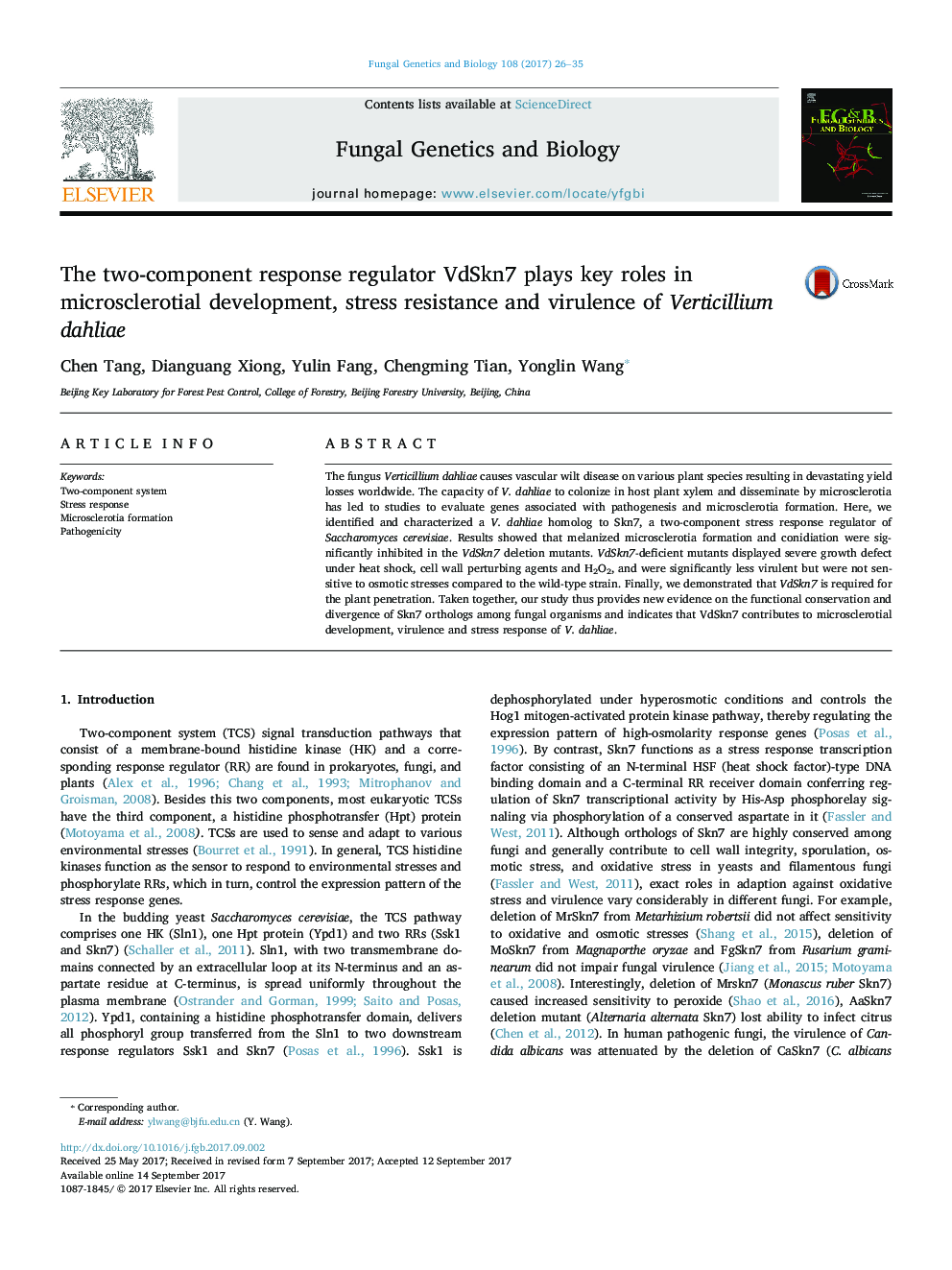| Article ID | Journal | Published Year | Pages | File Type |
|---|---|---|---|---|
| 5532516 | Fungal Genetics and Biology | 2017 | 10 Pages |
â¢Disruption of VdSkn7 postpones microsclerotia formation.â¢VdSkn7 regulates thermal stress response.â¢VdSkn7 mutant exhibits high sensitivity to H2O2 stress response.â¢Deletion of VdSkn7 attenuates virulence and impairs infectious ability.
The fungus Verticillium dahliae causes vascular wilt disease on various plant species resulting in devastating yield losses worldwide. The capacity of V. dahliae to colonize in host plant xylem and disseminate by microsclerotia has led to studies to evaluate genes associated with pathogenesis and microsclerotia formation. Here, we identified and characterized a V. dahliae homolog to Skn7, a two-component stress response regulator of Saccharomyces cerevisiae. Results showed that melanized microsclerotia formation and conidiation were significantly inhibited in the VdSkn7 deletion mutants. VdSkn7-deficient mutants displayed severe growth defect under heat shock, cell wall perturbing agents and H2O2, and were significantly less virulent but were not sensitive to osmotic stresses compared to the wild-type strain. Finally, we demonstrated that VdSkn7 is required for the plant penetration. Taken together, our study thus provides new evidence on the functional conservation and divergence of Skn7 orthologs among fungal organisms and indicates that VdSkn7 contributes to microsclerotial development, virulence and stress response of V. dahliae.
